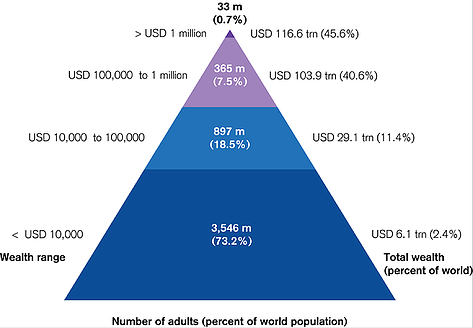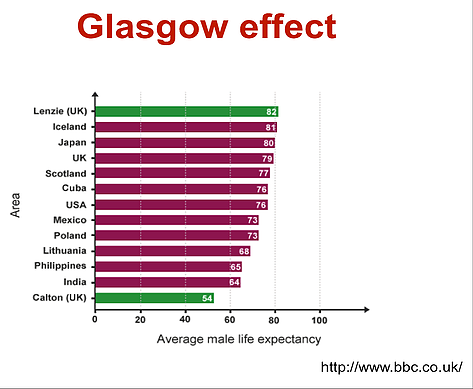The right to health and access to therapies. Our fight against the privatisation of the health care services
March 11, 2018 | Vittorio Agnoletto, MD, professor at University of Milan, Medicina Democratica association
Since 2013, the representatives of the most powerful states in the world have been discussing the TiSA (Trade in Services Agreement) agreement that will include education and health care. In 2014 such negotiations were revealed by WikiLeaks, the organization led by Julian Assange. The TiSA will be the largest trade agreement ever discussed, since services represent about 70% of the world’s GDP. On 4 February 2015 the AWP (Associated Whistleblowing Press agency) published a TiSA document which states the following: “There is enormous potential that is not yet exploited for the globalization of health services”. The health market is valued at several hundred billions. Yet potential gains may be even larger. “Being financed and provided by the State, or other welfare agencies, health systems are of no interest to foreign investors due to the absence of commercial purposes”.
The methods of meeting such an objective are quite easy: privatization, the opening of markets to large financial funds and international insurance companies, thus reducing the public responsibility for collective health. Governments all over the world, even those financing national healthcare services, keep reducing their budget expenses in health issues with the aim to privatize their health system and limit the right to universal, free of charge access to therapies.
THE SOCIAL DETERMINANTS OF HEALTH
According to the WHO, we deem health as “a state of complete physical, mental and social well-being and not just the absence of the state of illness.”
The Global Wealth Pyramid

This is the current social pyramid of the world where 8.2% of the population controls 86.2% of wealth, but above all where 73.2% of citizens have less than 2.5% of the wealth of the planet. The situation worsens yearly. Extreme poverty isn’t only in the southern hemisphere. Poverty, housing conditions, work rather than unemployment affect quality but also the duration of our lives, – in the USA the poorest die 14 years
Source: James Davies, Rodrigo Lluberas and Anthony Shorrocks, Credit Suisse Global Wealth Databook 2016 earlier than the richest.
Look at this slide –

Lenzie and Calton are two areas of Glasgow, less than 10 miles apart, yet, among them, there is a difference in life expectancy of nearly thirty years; thirty years between those living in a poor neighborhood and those living in a residential area and we are not comparing a village in Bangladesh with a Norwegian city. Here’s what it means to evaluate the social determinants of health.
Often in medical conventions one remembers how in ancient China the doctors were rewarded and paid more if less citizens entrusted to their care got sick. Prevention was the main subject of those who approached medical science. Today prevention in the Western world has almost disappeared.
But prevention does not require the use of drugs, large hospitals, sophisticated technology; prevention does not produce big profits, and so this is not in the interest of the market.
Just to give an example: according to UNAIDS, 1.8 million people in the world became newly infected with HIV in 2016 and according to data from the World Health Organization (WHO), published in the World Malaria Report 2016, there were about 212 million cases of malaria estimated worldwide in 2015 and about 429 thousand deaths, 70% of which among children under the age of 5 years (of which 292 thousand in the African Region), followed by Southeast Asia (7%) and the Eastern Mediterranean. It should be noted that tobacco is one of the leading causes of death among non-communicable diseases, but British American Tobacco Company was one of the main contributors to various foundations and political figures.
THE PRIVATIZATION OF HEALTH SERVICES
Every year the financing of the National Health Services in EU grows less and less than it would be necessary even to recover the increase in prices of technologies and services estimated at an average around 2%, and to equalize inflation.
In Greece the effects have been devastating; even countries with efficient health systems and a long tradition behind them have had similar fate. In Spain in 2012 the universalistic system was replaced by an insurance company, in England, with a law that came into force in 2013, the National Health Service was destroyed and the production of services was privatized, in Italy, in Lombardy, the richest region, a recent right-wing government project, is trying to privatize healthcare of 3,350,000 citizens.
The privatization of health increases year by year everywhere, in the future only the rich ones will be able to cure themselves. It is not true that the privatization of health systems produces saving in spending: it simply transfers substantial expenses from the State to the individual citizen.
THE BUSINESS OF DRUGS
A market-oriented approach, as imposed by the multinationals managing the sector, rules the availability and the access to drugs. The aims and the needs of public health don’t count for anything. While multinationals foster the use of useless products, all possible means are provided to limit the access to economical, affordable drugs for millions of patients to whom the use of drugs is denied as these are too expensive. In such a framework, the commercialization of health enhanced by the financial system damages all human beings, in particular the most vulnerable and poor people. Innovative drugs prices are rising without any justification due to their production costs as the patent owners set their prices in a monopoly regime.
Such a situation might become even worse in case the international commercial agreements extend the patent duration, already granted for 20 years by the TRIPS agreements, and will impose more constraints on the concerned countries limiting their power in regulating the market.
If Big Pharma companies have not broken down in the face of $ 14 billion fines sentence in five years for bribery and bogus advertising, it’s because you willingly pay when the crime produces gains many times greater than the penalties!
We ask that States immediately apply the two clauses contained in the TRIPs agreements – the Agreement on Trade Related Aspects of Intellectual Property Rights- that allow a nation to directly produce drugs without respecting patents, when it is not able to guarantee the care of its citizens. I am speaking about parallel importing (art.6) and compulsory licenses (art.31). These clauses are only formal statements, but in their current version they are unusable.
We ask that our governments challenge the TRIPs within the World Trade Organization; it makes no sense to guarantee a production monopoly for twenty years, when in only one year companies can recover all expenses and investments. But this is not enough.
It is not possible to let the pharmaceutical industry be a monopoly of the private sector, it is important to fight to resurrect a public drug industry, even supranational, but public, which aims to cure and not to profit. We have spoken so far of diseases for which there are treatments but are increasingly unaffordable for an immense amount of people. A further issue concerns the so called “neglected diseases”, the forgotten diseases, for which no research is done because they affect poor populations out of the market and for which, in some cases, the drugs are there but are kept in the drawer because they would not produce profits.
CONCLUSION
All these elements represent a clear attack to people’s right to health: the neo-liberal policies supported by the most powerful countries in the world are fully responsible. Defending the right to health, to universal, national healthcare systems, and to the free access to therapies is a way to contain such policies. It is also a way to oppose without any ambiguity those who are part of this economic and financial system.
I believe there is not only a heavy attack on the health condition of human beings driven by the head of political, economic and financial powers, but also on the will to provide suggestions for a global agenda aimed at opposing the privatization of health care systems.
The privatization of health, the appropriation of the human body as a source of income proceeds hand in hand with the privatization of the Common Goods which are indispensable for the survival of mankind and other species, to begin with water and land.
What we are launching now is the challenge to build a long-lasting alliance between a part of the scientific world and social movements because health can have neither masters nor borders.
Ours is not a cry of despair, what we launch is a sign of hope for those who refuse to surrender, for those who do not take refuge in individual solutions, for all those who will be born tomorrow, so that they do not have to curse their existence, but they will still be able to fall in love with the world and the surprises that life will reserve for them.
The neo-liberal wave that was generated by Reagan’s and Thatcher’s policies at the beginning of the 80’s of the last century, did not spare healthcare systems, making them a privileged area for the interests of the market (decline of the public sector, privatization, etc). The World Bank played a crucial role in these processes which affected low and middle income countries at first and later on, in the wake of the 2008 financial crisis and the following austerity policies, the national health systems in rich countries.
*** Vittorio Agnotetto An occupational health medical practitioner, Vittorio Agnoletto is also professor of “Globalization and Health Policies” at the University of Milan, and author of several scientific publications on national and international reviews. He is part of the International Council of the World Social Forum. In November 2017, he was spokesperson of the International Forum for the Right to Health against the G7 Summit. He was a member of the European Parliament, working on human rights and free trade agreements, especially the EU-ACP FTA. In 2001, he was spokesperson of the global movement against G8 in Genoa in 2001. He is founder of the Italian League Against HIV (LILA) and a member of the HIV National and International Committees. He has managed a lot of research projects in Europe and Africa on public health, access to medicines, drug addiction, HIV, and compulsory license. He is also a member of Medicina Democratica (Democratic Medicine) and CostituzioneBeniComuni (Constitution and Common Wealth).



